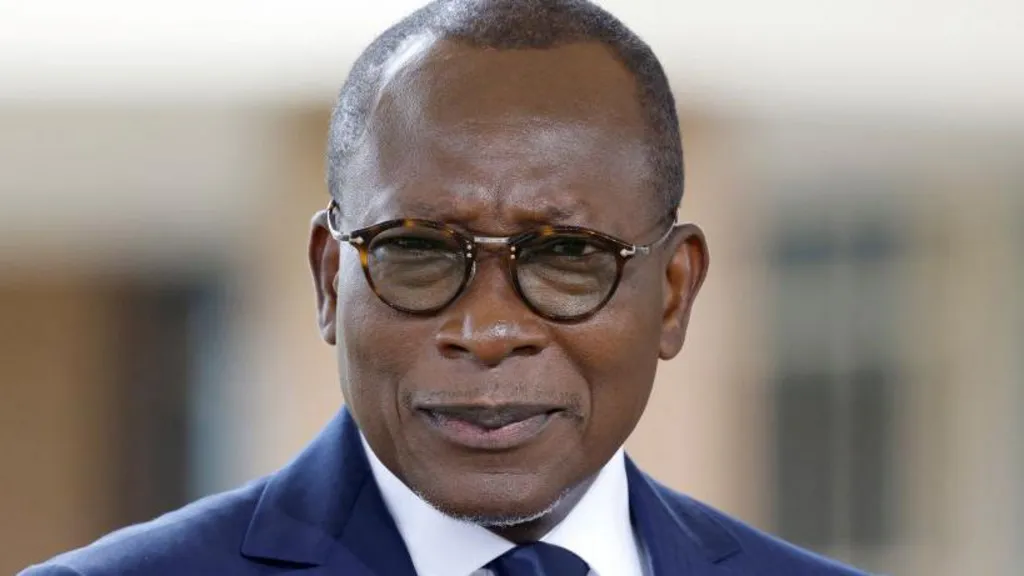Benin arrests three men over suspected coup plot
2 min read
President Patrice Talon has announced he would step down in 2026 elections.

President Patrice Talon has announced he would step down in 2026 elections.
Authorities in Benin have apprehended three individuals, including a former minister and the head of President Patrice Talon’s security detail, amid allegations of a coup plot. The state prosecutor revealed these details during a press conference, highlighting the seriousness of the situation.
On Tuesday, former sports minister Oswald Homeky was detained while allegedly transferring six bags of money to Colonel Elonm Mario Metonou, the leader of the Republican Guard. Investigators indicated that Colonel Djimon Dieudonne Tevoedjre was reportedly being bribed to facilitate the coup, which was supposedly scheduled for Friday.
In addition to Homeky and Metonou, a businessman named Olivier Boko was also arrested. Boko is a known associate of President Talon and has recently expressed political aspirations, raising concerns among his supporters and legal representatives. They have condemned his arrest as an “abduction” and are calling for his immediate release.
The prosecutor stated that investigations are ongoing to uncover additional suspects linked to the plot, indicating a wider network of involvement. This incident highlights a troubling trend in the region; Benin, once celebrated for its democratic processes, has increasingly moved toward autocratic governance under Talon, according to various human rights organizations.
Since Talon took office, there has been a notable decline in democratic freedoms, prompting concerns both domestically and internationally. President Talon has pledged not to seek a third term in the upcoming 2026 elections, a promise that may aim to ease tensions and restore some level of public trust.
The political landscape in West and Central Africa has been unstable in recent years, with eight military coups and numerous other coup attempts reported since 2020. This broader context underscores the precarious nature of governance in the region, making the recent arrests in Benin all the more significant.
As the investigation unfolds, the implications for Benin’s political stability remain to be seen. The situation serves as a reminder of the challenges facing democratic institutions in West Africa, as nations grapple with issues of governance, civil liberties, and the rise of authoritarianism.